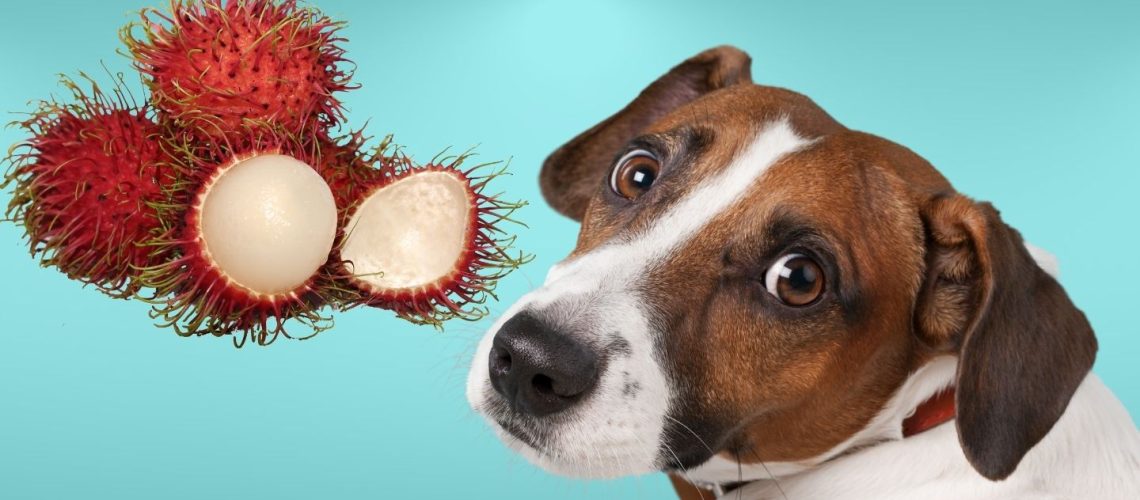The short answer to the question "Can dogs eat rambutan?" is that while the flesh of the rambutan fruit is safe for dogs to consume, dogs should avoid eating the rambutan seeds and skin, as they can be toxic to them due to the presence of a substance called saponin.
Introduction to Rambutan
What is Rambutan?
Rambutan is a tropical fruit native to Southeast Asia, closely related to lychee and longan. The fruit is known for its unique appearance, with a reddish/orange hairy exterior and a juicy, sweet, and translucent white flesh inside. The fruit also contains a single seed in the center, which should not be consumed by dogs.
Nutritional Benefits of Rambutan for Humans
Rambutan is rich in nutrients, including vitamin C, manganese, and potassium. It is also a good source of dietary fiber and antioxidants. As a low-calorie fruit, it is a popular choice for people looking to enjoy a sweet and refreshing treat without consuming too many calories.
Rambutan Flesh: Is it Safe for Dogs?
Nutritional Content of Rambutan Flesh
The flesh of the rambutan fruit is low in calories and contains essential nutrients such as vitamin C, potassium, and fiber. However, the fruit is also high in natural sugars, which can be detrimental to a dog's health in large amounts.
Potential Benefits of Rambutan Flesh for Dogs
In small quantities, rambutan flesh can offer some nutritional benefits to dogs, such as providing essential vitamins and minerals. It may also offer some hydration due to its high water content.
How to Serve Rambutan Flesh to Your Dog
If you choose to feed rambutan flesh to your dog, ensure that the skin and seed are removed before offering it. You can also cut the flesh into smaller pieces to make it easier for your dog to chew and digest. Remember to only feed your dog a small amount and monitor them closely for any negative reactions.
Rambutan Seeds: Why They Are Dangerous for Dogs
Saponin: The Toxic Substance in Rambutan Seeds
Rambutan seeds contain a toxic substance called saponin, which can be harmful to dogs if ingested. Saponin acts as a natural detergent that can lead to stomach upset and vomiting in dogs. In severe cases, saponin poisoning can cause tremors, difficulty breathing, and even death.
How Much Rambutan Seed is Toxic for Dogs?
The amount of rambutan seed that is toxic to dogs may vary depending on their size and individual sensitivity. It is best to prevent your dog from consuming rambutan seeds entirely, as even small amounts can cause gastrointestinal issues or other symptoms of saponin poisoning.
Preventing Accidental Ingestion of Rambutan Seeds
To prevent accidental ingestion of rambutan seeds, always remove the seeds before offering the fruit to your dog. Also, make sure to store rambutan and other exotic fruits out of your dog's reach to avoid any unintentional contact with toxic seeds.
Rambutan Skin: The Hidden Danger
Saponin Content in Rambutan Skin
Similar to rambutan seeds, the skin of the fruit also contains saponin. This makes it dangerous for dogs to consume, as it can lead to the same toxic symptoms experienced after ingesting the seeds.
Potential Risks of Dogs Ingesting Rambutan Skin
If a dog ingests rambutan skin, they may experience gastrointestinal irritation, vomiting, and diarrhea. In severe cases, it can lead to tremors, difficulty breathing, or even death.
Rambutan Alternatives for Dogs
Safe Fruits for Dogs
There are many safe fruit options for dogs, including apples (without the seeds), blueberries, and watermelon (without the seeds and rind). These fruits can offer similar nutritional benefits without the potential risks associated with rambutan.
How to Introduce New Fruits to Your Dog's Diet
When introducing new fruits to your dog's diet, always start with a small amount and monitor for any potential adverse reactions. If your dog tolerates the fruit well, you can gradually increase the serving size over time.
Rambutan and Other Exotic Fruits: General Precautions for Dog Owners
Keeping Exotic Fruits Out of Reach
Always store exotic fruits like rambutan, lychee, and longan out of your dog's reach to prevent accidental ingestion of toxic seeds or skins.
Educating Yourself on Toxic Foods for Dogs
As a responsible dog owner, it's important to know which foods are safe for your pet to consume and which ones to avoid. Familiarize yourself with the potential risks associated with feeding your dog exotic fruits to ensure you are providing them with a safe and nutritious diet.
Monitoring Your Dog's Diet and Health
Stay vigilant about what your dog consumes and monitor their overall health. If you notice any symptoms of toxic ingestion or other health concerns, contact your veterinarian immediately for guidance and care.











